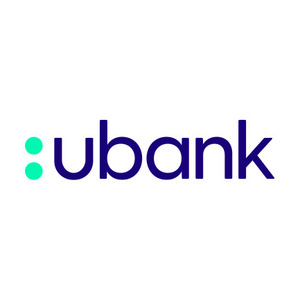Product Name UBank UHomeLoan Variable Rate - Discounted Rate — borrowing between $200,000 and less than $700,000 (Owner Occupier, P&I)
Interest Rate Type Variable
Interest Rate (p.a.) 3.69%
Comp Rate^ (p.a.) 3.69%
Minimum Loan Amount $200,000
Maximum Loan Amount $700,000
Maximum Loan Term 30 years
Maximum LVR 80%
Maximum Insured LVR 80%
Mortgage Offset Account No
Mortgage 100% Offset No
Loan Redraw Facility Yes
Split Loan Facility Yes
Fixed Interest Option Yes
Loan Portable Yes
Suitable for Investment No
Extra Repayment Yes
Available as equity loan/line of credit No
Repayment Type Principal & Interest
Refinance and get a surprise bonus $1000 into a USaver account
To be eligible for the UBank UHomeLoan, you must:
Currently be earning a Pay As You Go (PAYG) income from an employer (this excludes rent, Centrelink payments, superannuation or family payments as your main source of income).
Never have committed a financial crime or declared bankruptcy.
Be an Australian resident with an Australian residential address.


Not quite, thats why precisely people have offset account